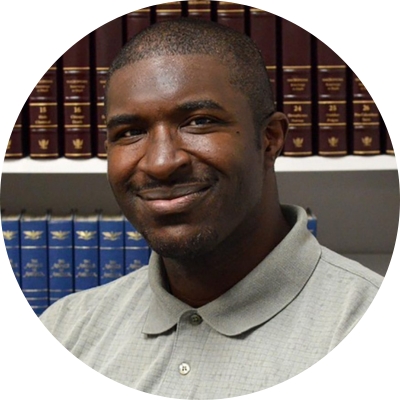
Where is your school on the spectrum of engagement? The answer to this question is intricately determined by your school’s view of culture (how it is being defined and used), how Christianity is defined (who is Christ, what has he accomplished), and how it is lived out amongst your constituents. H. Richard Niebuhr, in Christ and Culture, recognizes that the answers to these questions have been a concern of Christians throughout the ages. It is not a new problem. The tensions that we are experiencing in the body of Christ as it relates to levels of social engagement from the proponents of BLM to those of Christian nationalists are new manifestations of this “enduring problem”.
 The good news is that this is not new. The bad news is that Christians throughout the ages continue to struggle with these questions with little consensus on what the “right” view or approach is. Niebuhr admits that his own examination of Christians’ responses to this “enduring problem is unconcluded and inconclusive” (Niebuhr 2003, 230). This admission, especially considering the comprehensiveness in which he seeks to address the topic, should bring us to a place of humility and sobriety of thought as we consider what insular culture is and how to move towards community engagement. He offers this introduction to his seminal work:
The good news is that this is not new. The bad news is that Christians throughout the ages continue to struggle with these questions with little consensus on what the “right” view or approach is. Niebuhr admits that his own examination of Christians’ responses to this “enduring problem is unconcluded and inconclusive” (Niebuhr 2003, 230). This admission, especially considering the comprehensiveness in which he seeks to address the topic, should bring us to a place of humility and sobriety of thought as we consider what insular culture is and how to move towards community engagement. He offers this introduction to his seminal work:
“A many-sided debate about the relations of Christianity and civilization is being carried on in our time. Historians and theologians, statesmen and churchmen, Catholics and Protestants, Christians and anti-Christian participate in it. It is carried on publicly by opposing parties and privately in the conflicts of conscience. Sometimes it is concentrated on special issues, such as those of the place of Christian faith in general education or of Christian ethics in economic life. Sometimes it deals with broad questions of the church’s responsibility for social order or of the need for a new separation of Christ’s followers from the world.”
He continues,
“The debate is as confused as it is many-sided. When it seems that the issue has been clearly defined as lying between the exponents of a Christian civilization and the non-Christian defenders of a wholly secularized society, new perplexities arise… So many voices are heard, so many confident but diverse assertions about the Christian answer to the social problem are being made, so many issues are raised, that bewilderment and uncertainly best many Christians” (Niebuhr 2003, 1).
Written nearly 75 years ago, Niebuhr’s words are still relevant to our present circumstance.
He opens his book attempting to define separately “Christ” and then “culture” and then explores how the definitions manifest themselves throughout history. He identifies five interpretations of the relationship between Christianity (Christ) and civilization (culture):
- Christ against culture
- The Christ of culture
- Christ above culture
- Christ and culture in paradox
- Christ the Transformer of Culture
Niebuhr notes that our definition of culture should not be tied to a particular society or civilization or defined too narrowly that it excludes important elements. Rather, he states that culture is the “‘artificial, secondary environment’ which man superimposes on the natural. It comprises language, habits, ideas, beliefs, customs, social organization, inherited artifacts, technical processes, and values” (Niebuhr 2003, 32).
In keeping with this line of thought, culture is sometimes used as a euphemism for a group of people with whom Christians should not be associated. This exhibits a fundamental misunderstanding of what culture is. Stonestreet and Kunkle remind us in A Practical Guide to Culture (2017) that it is dangerous to think of culture as people.
“People make culture and are, in turn, shaped by culture, but equating them with culture is wrong and can even be dangerous. If we see people as culture and culture as the enemy, we’ll likely see people as the enemy and confuse their bad ideas with evil intentions. But culture is not people; culture is what people do as people” (Stonestreet & Kunkle 2017, 33).
So, the idea that culture is something that we can actively step out of must be jettisoned. The idea that Christians are to be “here” and culture, “over there” is not an accurate view of reality and demonstrates a fundamental flaw in anyone who professes to have a Christian worldview.
Of the five interpretations of the relationship between Christ and culture, Niebuhr concludes that “Christ the Transformer of Culture” is more aligned with the testimony of Scripture and the positive activity of the church throughout history. He says this of those taking this position, “Though they hold to the radical distinction between God’s work in Christ and man’s work in culture, they do not take the road of exclusive Christianity into isolation from civilization, or reject its institutions…” (Niebuhr 2003, 190).
He goes on to say that what distinguishes those who subscribe to the “Christ the Transformer of Culture” position is that they have a “more positive and hopeful attitude toward culture” (Niebuhr 2003, 191). Niebuhr recognizes that holding such a view is challenging, noting that its proponents must continually fight against two extremes: “anti-culturalism of exclusive Christianity and against the accommodations of culture-Christians.” This is not easy. It would seem that in order to effectively engage the culture, so that it may be transformed for Christ sake, requires a commitment to take on the mind of Christ (1 Corinthians 1:2:16), work out our salvation with fear and trembling by applying the commands of Christ to our daily lives (Philippians 2:13), take every thought captive for Christ (2 Corinthians 10:5), have our mind set on things above (Colossians 3:1), and daily renewing our mind in God’s word (Romans 12:1-2).
Christians succumbing to cultural captivity has been well documented and is a legitimate concern for anyone who desires to live faithfully for Jesus Christ. However, this should not be a cause for Christians to not engage the culture. Jeff Myers, in Truth Changes Everything (2022), celebrating the transformative message of Jesus Christ and its effects on history, says this:
“As I reflect on the difference Truth-seeking Jesus followers made even in times of crisis, I’m struck by how creative they were. They did not seem interested in turning back the clock or reclaiming the glory of a previous era. They were innovators. Their fidelity—faithfulness—to the Truth grounded their efforts and made them possible.”
Where would we be today, in our present moment, if Christians would have remained in their caves? Hospitals, orphanages, higher education, securing women’s rights and racial/ethnic equality—who leads this charge or stands in the gap, if not Christians? We are the ones who have been given the keys to the kingdom (Matthew 16:19). We are the ones who know the way, the truth, and the life (John 14:6). We are the ones who possess the Holy Spirit which leads us into all truth (John 16:13). If not us, then who? Can we rightfully complain about the decadence of culture, if we have not fulfilled our mandate to be salt and light (Matthew 5:13-16)? What good is salt if it remains in the shaker? What good is a flashlight if it is never used in the dark?
Historic, orthodox (evangelical) views of Christianity suggest an overwhelming posture towards engagement rather than isolation or insularity. At the core of our mission is to engage the culture for the sake of Christ. We are Christ’s ambassadors, given the ministry of reconciliation (2 Corinthians 5:20) and our schools provide great training grounds to make disciples (Matthew 28:19-20) who do likewise. How will we prepare our students to engage their present culture and equip them to shape it now and into the future?
Resources:
Myers, Jeff. Truth changes everything: How people of faith can transform the world in times of crisis. Baker Books, a division of Baker Publishing Group, 2022.
Niebuhr, H. Richard. Christ & culture. New York: HarperCollins World, 2003.
Stonestreet, John, and Brett Kunkle. A practical guide to culture: Helping the next generation Navigate today’s world. Colorado Springs, CO: David C Cook, 2017.
Editor’s Note: Join Jerry Nelson at ACSI’s Flourishing Schools Institute (FSi), where he will be speaking on the flourishing construct of Insular Culture. The next FSi will be in Phoenix, Arizona on November 7-9, 2023. Register your team today!
About the Author
 Jerry Nelson is the Chief Ministry Officer at ACSI (Association of Christian Schools International). He oversees all Spiritual Formation-related initiatives focused on the elevation of God’s Word, prayer, biblical worldview development, initiatives related to biblical unity, diversity, and social engagement and the fulfillment of the Great Commission for all of ACSI’s stakeholders. Jerry served a brief stint on the ACSI Board before joining ACSI. And prior to that he served as Head of School at Northwest Christian Academy in Miami, FL, for 11 years. He holds a B.A. in history and M.A. in educational leadership from St. Thomas University in Miami.
Jerry Nelson is the Chief Ministry Officer at ACSI (Association of Christian Schools International). He oversees all Spiritual Formation-related initiatives focused on the elevation of God’s Word, prayer, biblical worldview development, initiatives related to biblical unity, diversity, and social engagement and the fulfillment of the Great Commission for all of ACSI’s stakeholders. Jerry served a brief stint on the ACSI Board before joining ACSI. And prior to that he served as Head of School at Northwest Christian Academy in Miami, FL, for 11 years. He holds a B.A. in history and M.A. in educational leadership from St. Thomas University in Miami.

